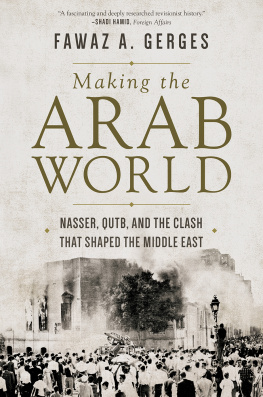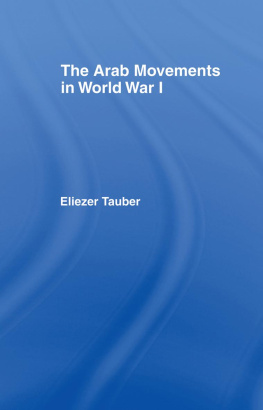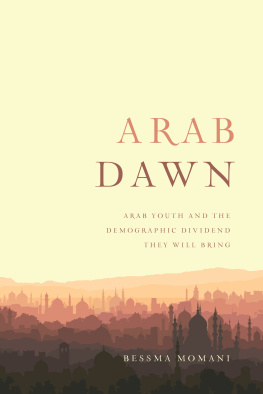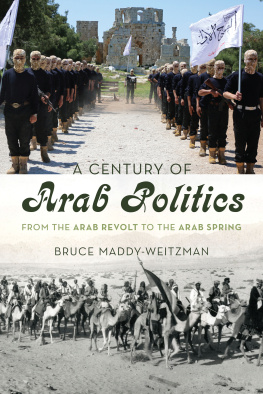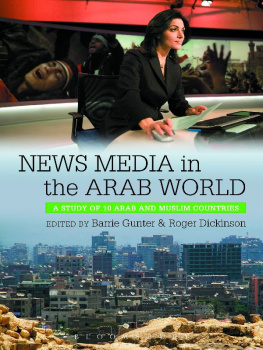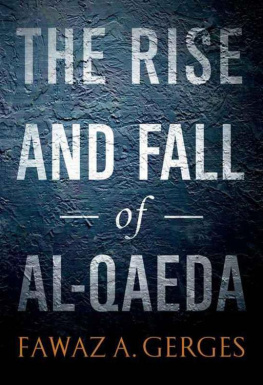Gerges - Making the Arab World
Here you can read online Gerges - Making the Arab World full text of the book (entire story) in english for free. Download pdf and epub, get meaning, cover and reviews about this ebook. genre: Politics. Description of the work, (preface) as well as reviews are available. Best literature library LitArk.com created for fans of good reading and offers a wide selection of genres:
Romance novel
Science fiction
Adventure
Detective
Science
History
Home and family
Prose
Art
Politics
Computer
Non-fiction
Religion
Business
Children
Humor
Choose a favorite category and find really read worthwhile books. Enjoy immersion in the world of imagination, feel the emotions of the characters or learn something new for yourself, make an fascinating discovery.
Making the Arab World: summary, description and annotation
We offer to read an annotation, description, summary or preface (depends on what the author of the book "Making the Arab World" wrote himself). If you haven't found the necessary information about the book — write in the comments, we will try to find it.
Making the Arab World — read online for free the complete book (whole text) full work
Below is the text of the book, divided by pages. System saving the place of the last page read, allows you to conveniently read the book "Making the Arab World" online for free, without having to search again every time where you left off. Put a bookmark, and you can go to the page where you finished reading at any time.
Font size:
Interval:
Bookmark:

Making the Arab World
Making the Arab World
Making the Arab World
Nasser, Qutb, and the Clash That Shaped the Middle East
Fawaz A. Gerges
PRINCETON UNIVERSITY PRESS
Princeton & Oxford
Copyright 2018 by Fawaz A. Gerges
Requests for permission to reproduce material from this work should be sent to Permissions, Princeton University Press
Published by Princeton University Press,
41 William Street, Princeton, New Jersey 08540
In the United Kingdom: Princeton University Press,
6 Oxford Street, Woodstock, Oxfordshire OX20 1TR
press.princeton.edu
Jacket photograph: Burning of the Muslim Brotherhoods headquarters in Cairo, Egypt, in retaliation for an attempted assassination of President Gamal Abdel Nasser, October 27, 1954 / AP Photo
Jacket design by Faceout Studio, Charles Brock
All Rights Reserved
ISBN 978-0-691-16788-6
Library of Congress Control Number: 2018930051
British Library Cataloging-in-Publication Data is available
This book has been composed in Miller Text
Printed on acid-free paper.
Printed in the United States of America
10 9 8 7 6 5 4 3 2 1
AS ALWAYS, FOR NORA
Contents
ix
THIS BOOK SETS OUT TO explain how the opposing forces of Arab nationalism, spearheaded by the military, and the Islamists, led mainly by the Ikhwan (the Muslim Brothers), have shaped the development of postcolonial Arab politics. It does so by focusing on two seminal, and interconnected, figures: Gamal Abdel Nasser and Sayyid Qutb.
Far from being diametrically opposed, the movements that Nasser and Qutb represent have had critical commonalities with each other. The book aims to break down the established and misleading dichotomy of two monolithic ideas that has dominated conventional thinking on Middle Eastern politics. Through a detailed historical, sociological, and personality-based approach the book shows that Arab nationalism and Islamism are constructed in large part through interaction with each other, and also that each group has ideational fluidity, shifting from one mode of thinking to another. In so doing, the book avoids reductionist and ahistorical viewpoints that frequently stereotype both Arab nationalists and Islamists.
The history pinpoints the rise of nationalist forcesboth religious nationalists and more secularly oriented nationalistsstarting in the nineteenth century. Although the narrative traces the gradual emergence of nationalists and Islamists as sui generis political forces to the beginning of the twentieth century, lasting until the 1940s, it focuses particular attention on the successful July 1952 coup dtat in Egypt by the Free Officers, a moment that represents the official rupture of the nationalist movement into two separate strands. Egypt was initially the main battlefield, but the confrontation between nationalist (Arabist) and Islamist spread to neighboring countries, undermining the development of nascent postcolonial states. This prolonged confrontation, between the two most powerful social and political movements in the region, has left a deep, indelible scar on Arab states, societies, and economies. Today, the deep divide between nationalists and Islamists is invested with profound existential meanings that far outstrip those at its genesis.
Moreover, in order to relate the story of the titanic clash between the Arab nationalist and Islamist movements, the book is framed as a dual biography of Gamal Abdel Nasser, Egyptian president and highly charismatic Arab popular leader, and Sayyid Qutb, master ideologue of revolutionary Islamism. Based on extensive interviews with their contemporaries, as well as on archival sources, the biographies of Nasser and Qutb present fresh readings of both men who have been mythologized by their enemies but also, tellingly, by their disciples. Nasser thus emerges as more a pragmatist than an ideologue and as more open to Islam than his secular image would suggest. Qutb comes out as a more complex and multidimensional personality than has usually been presented, whose legacy is often deliberately misinterpreted by Islamists themselves. Avoiding clear-cut divisions, the double biography provides valuable and much-needed nuance on Nassers and Qutbs lives and on their troubled times.
The rift between the nationalists and the Islamists created a significant political fault line in Egyptian political life and remains a part of political life throughout the Arab world and the Middle East. However, far from being a binary and inevitable divisionas it is too often depicted by both participants and analyststhe struggle between nationalists and Islamists is far more complex. The focal point of the struggle is the state, its power, and its position as custodian of the public sphere, not ideology.
One of the key goals of this book is to reconstruct the history of this deadly encounter between nationalists and Islamists and to shed further light on its effects on state and society in Egypt and neighboring Arab countries. These two movements formed a duality defining sociopolitical life, and the study argues that their interactionboth as a fierce rivalry and as a symbiotic cooperationwas so profound that neither can be properly understood if viewed as a separate historical agent. There is a large library of books dealing with Nasser and Egyptian and Arab nationalism and another large library of books on Qutb, the Muslim Brotherhood, and Islamist movements in general. A remarkable aspect of this scholarship is the degree to which these two libraries present separate pictures and are not integrated across time and space. Studies of Nasserism and nationalism mention Qutb and the Muslim Brotherhood, but such observations tend to be marginal to the main lines of analysis. In a similar vein, books on Qutb and political Islam pay remarkably little attention to the evolution and continuing popular support for populist nationalism as articulated by Nasser. While studies of Islamism note populist opposition to elitist secularism, there tends to be little recognition that the nationalist movement in Egypt did not involve a rejection of Islam, even in some of its more traditional forms. In contrast, this analysis presents a distinctive synthesis of the two existing libraries and concentrates on the dynamic interaction between nationalism and Islamism from the late nineteenth century till the present, though focusing specifically on the period since the early 1950s.
I have worked on this book intermittently since 2006, spending two years on field research in various Arab countries, which enabled me to conduct scores of in-depth interviews with leading activists, public intellectuals, politicians, and civil society leaders. Utilizing historical sociology and a historical-thematic approach, the book takes human agency seriously by focusing on collective action, hidden internal struggles, clashes of personalities, and pivotal watershed moments. It is rich with ethnographic details, including personal testimonies of old men who have since died and middle-aged ideologues who have been at the forefront of the confrontation.
On a personal note, I have been engaged in these debates for many years, and the book is an attempt to make sense of the prolonged divide that has hindered political transition and evolution in the region. For example, the durability of this clash was shown in 2013, when the Egyptian military overthrew the elected government of President Mohamed Morsi of the Ikhwan. Many observers were surprised by the depth of popular support for Abdel Fattah al-Sisis clampdown in 2013 against a democratically elected government led by the Ikhwan so soon after the massive Tahrir demonstrations that had overthrown the military regime of Hosni Mubarak. The book provides an analytical and empirical framework for understanding the current turmoil in Egypt and neighboring Arab countriesas a continuation of the long-standing interaction between nationalism and activist Islamismand also a framework for making sense of the complexities of the groups involved.
Font size:
Interval:
Bookmark:
Similar books «Making the Arab World»
Look at similar books to Making the Arab World. We have selected literature similar in name and meaning in the hope of providing readers with more options to find new, interesting, not yet read works.
Discussion, reviews of the book Making the Arab World and just readers' own opinions. Leave your comments, write what you think about the work, its meaning or the main characters. Specify what exactly you liked and what you didn't like, and why you think so.

